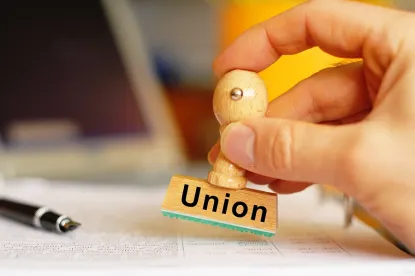A divided panel of the U.S. Court of Appeals for the First Circuit has upheld a National Labor Relations Board decision that a Massachusetts automobile dealer’s policy banning the wearing of “message pins” violated union insignia protections under the National Labor Relations Act. Boch Imports, Inc., d/b/a Boch Honda v. NLRB, Nos. 15-1653, 15-1721 (1st Cir. June 17, 2016).
Based on an unfair labor practice charge filed by a union representing some Boch Honda employees, the NLRB’s regional office in Boston issued an unfair labor practice Complaint against Boch Honda, contending the dress code and personal hygiene provision in Boch’s employee handbook, which banned employees who had contact with the public from wearing pins, insignias and other message clothing, was unlawful. An NLRB Administrative Law Judge found the provision violated the NLRA with respect to insignias and other message clothing, but held that the ban on pins was lawful because of Boch’s interests in promoting workplace safety and preventing damage to vehicles.
Boch Honda appealed the unfair labor practices finding to the Board. The NLRB’s General Counsel also appealed, excepting to the Judge’s refusal to find the ban on pins unlawful. Upholding its ALJ generally, the Board, however, disagreed with the ALJ’s failure to find a violation in the ban on pins, because the ban was not narrowly tailored to address workplace safety and prevention of damage to customers’ vehicles.
Boch Honda sought review of the NLRB’s decision in the First Circuit, contending the NLRB ignored Boch Honda’s substantial interest in protecting its public image, which justified its insignia and message clothing bans. It also contended the pin ban was justified by safety concerns.
The Court denied Boch Honda’s appeal and granted the NLRB’s petition for enforcement, concluding the ban on pins violated employees’ right to wear union insignia during work hours. The Court noted the NLRB can require employers to demonstrate “special circumstances” to justify a ban on employees wearing union insignia. The Court explained that special circumstances exist, for example, when the wearing of “union attire” could jeopardize employee safety, damage machinery or products, or unreasonably interfere with a public image that the employer has established. The Court also explained that the limitations must be tailored to the particular special circumstances advanced by the employer.
The Court held that Boch Honda had not met the special circumstances standard because it had “simply failed to explain why . . . non-uniformed employees’ wearing a small and unobtrusive union pin (for example) would unreasonably interfere with the general professional environment Boch sought to create.” The Court also rejected Boch Honda’s argument that its interests in promoting workplace safety and preventing damage to vehicles justified its blanket ban on pins because it was not sufficiently narrowly tailored. Although the Court agreed that an employee’s pin could fall into an engine while the employee was working under the hood of a car or damage the car’s paint or leather, the ban on pins was not narrowly tailored to protect against those situations.
Dissenting only as to majority’s decision on the pin ban, Judge Norman Stahl disagreed that the NLRA automatically grants employees a presumptive right to wear union paraphernalia at work, and noted the NLRB’s decisions on worker attire make it difficult for companies to design or enforce lawful dress code policies. Judge Stahl noted that by “rubber-stamping” the NLRB’s “arbitrary infatuation” with workplace dress codes, the Court was granting the NLRB the authority to play “fashion police.”
An unfair labor practice charge can be filed with the NLRB by a union, employee, or other person at any time to challenge a workplace conduct, social media, or dress code policy. The “ground rules” by which the NLRB judges the legality of such policies can, and do, change, so that periodic review and revision of workplace policies is prudent and necessary.







 />i
/>i

